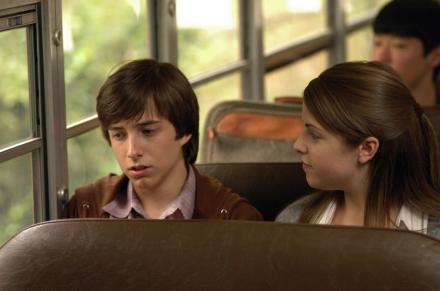
B+
Directed by Olivier Assayas
Olivier Assayas teams up with his ex-wife Maggie Cheung to make the effective and quite enjoyable "Clean," a story about one woman's long road back from substance abuse.
Cheung plays Emily, the wife of an over the hill rock star Lee who tries to manage her husband's career but more than often simply gets in the way of his success. Emily and Lee are also longtime heroin addicts. Their drug abuse turns tragic in, of all places, Hamilton Ontario where Lee, after a fight with Emily, overdoses and dies. Emily is taken into custody and sentenced to six months in prison for drug possession. Upon her release she meets with her father in law (played by Nick Nolte) who has been looking after he young son, Jay. Emily leaves for Paris and begins the long and difficult process of rebuilding her life in an ultimate effort to someday see Jay again.
Movies dealing with drug use are rather common but films such as "Clean," which focus on recovery from drug use as opposed to the abuse of narotics, are much more rare, perhaps due to the fact that recovery, unlike self destruction, doesn't lend itself as well to dramatic adaptations. Assayas's film proves, however, that the road back from drug addiction can be a fascinating subject matter indeed. In "Clean" Emily's recovery, and not her past excesses, is the focal point but the cost of her former lifestyle is not smoothed over by Assayas who quite effectively uses his picture to show the life altering effects of drug abuse, even years after the habit is finally quicked to the curb. At the same time, Assayas tries to get inside the mind of a drug user and explain why, exactly, individuals often give themselves up to substance abuse.
What truly elevates "Clean", however, is Cheung whose performance here is spectacular. This comes as no surprise to audiences familiar with much of her previous work but hr ability to convincingly play Emily, a brash and reckless junkie, flies in the face of much of her better known work where she primarily starred as a demure, reserved, and mannered woman. Cheung's ability to switch from English to French to Cantonese also gives some added credibility to her character's background as a globetrotting rocker even though Cheung's real life persona is as far removed from that as possible. Nick Nolte is also solid and his character is surprisingly three dimensional. Rather than being a bitter, remorseful father who blames Emily for his son's death, he is rather a mild mannered and caring character who attempts, not without trouble, to raise Emily's child while still keeping her as much a part of her son's life as possible. It's touching stuff, for sure, but it also feels more authentic than having Emily face off against a spiteful father bent on keeping her away from her child, a choice the writers of "Clean" could easily have made.
"Clean," although not one of Assayas's premier works, is an satisfying film that handles its subject matter both fairly and effectively.





